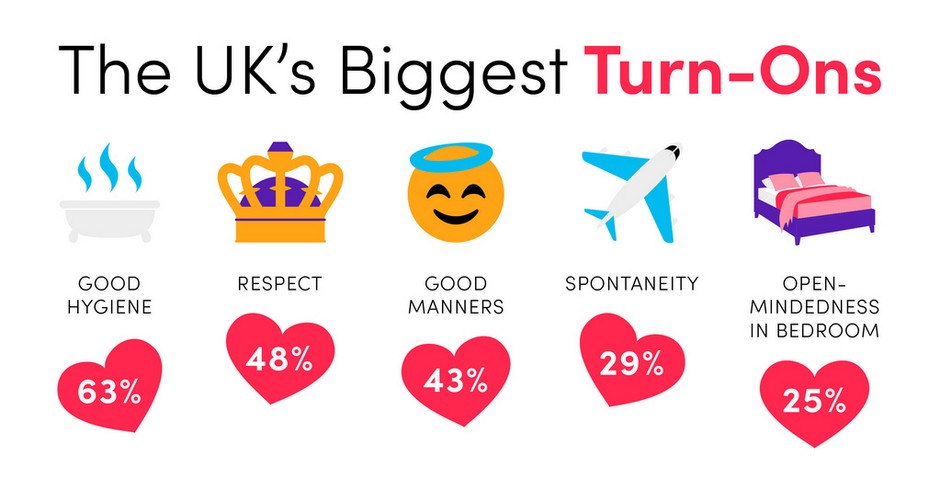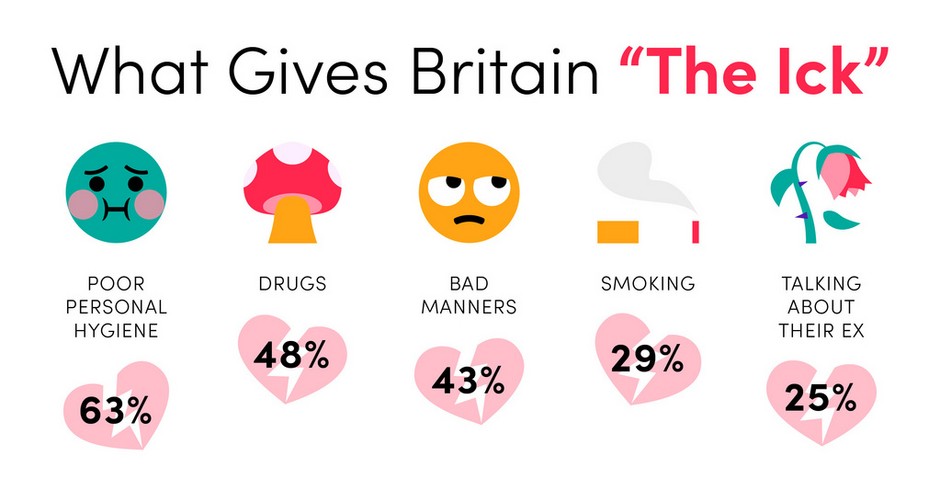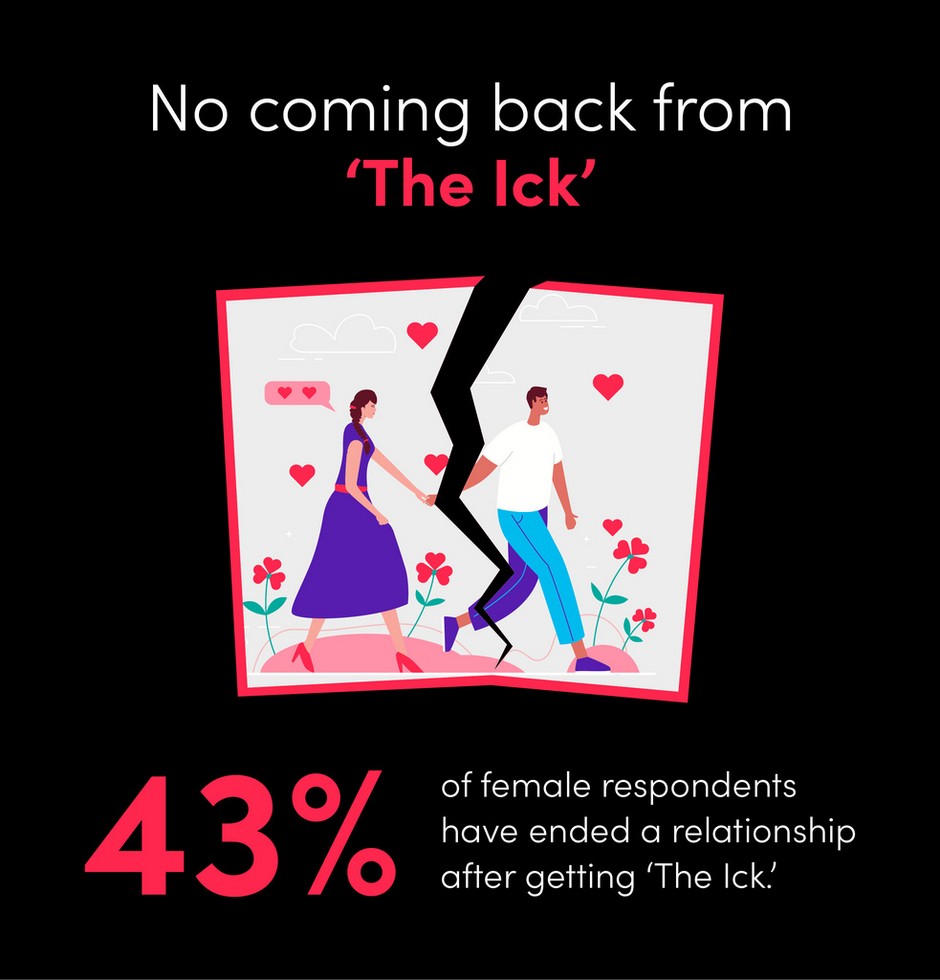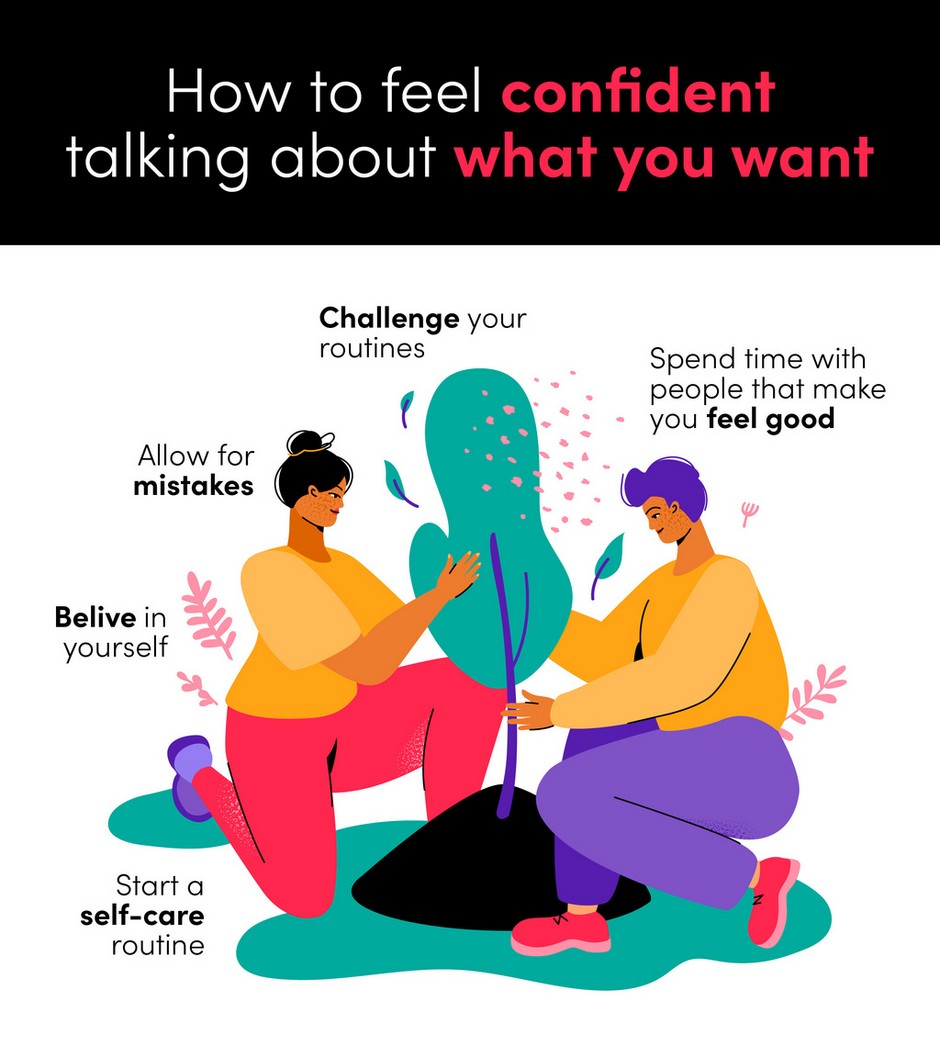The UK’s ‘Ick’ Index
on 1 Jul 2022
Hygiene, respectfulness and open-mindedness in the bedroom are some of Brits’ biggest turn-ons.

From bad breath and talking about their ex, to holding a fish in their dating app photo, to an aversion to using clitoral vibrators while being intamate together, ‘the ick’ can put a swift halt to any blossoming relationship. While a lot of people find it hard to understand exactly what ‘the ick’ is and why it happens, we all definitely know about it and most of us will have experienced it.
So, with the modern dating world already being on par with a real-life version of The Hunger Games, we’ve surveyed 2,083 Brits to break down exactly what they are looking for (and looking to avoid) to make it that much easier for everyone when they embark on the journey of finding the one… or the next one.
The UK’s biggest turn-ons
To start off with, we asked Brits to state what they found the most attractive when looking for a potential partner, and unsurprisingly, good hygiene (63%), being respectful (48%) and having good manners (43%) came out on top. However, when we took a closer look at whether this differs between men and women, we discovered that 37% of men were turned on by open-mindedness in the bedroom compared to only 15% of women.

The UK’s biggest ‘icks’
It was only natural to then ask Brits what their biggest ‘icks’ are. Similarly to the biggest turn-ons, poor personal hygiene (55%) and having bad manners (37%) came in as two of the biggest icks, but smoking (32%) and talking about their ex (26%) also made it into Brits’ top five turn-offs.

Almost half of UK women have ended a relationship due to getting ‘the ick’
When you get ‘the ick’, it’s often followed by getting a pit in your stomach as you know that this romance is hitting the rocks. But does that really mean it’s the end? For women, it often does! We found that almost half of female respondents (43%) admitted to cutting off a relationship due to getting the ick, and 60% said that they’d never come back from ‘the ick’. So, unfortunately, for anyone in a relationship with a woman who gets the ‘the ick’, it means almost certain relationship death.

The psychology behind ‘the ick’
To get the low-down on why we get ‘the ick’ and whether it does actually mean the end of a relationship, we’ve spoken to sex and relationship expert, Ness Cooper:
“The ick often occurs after the first phase of a relationship, where couples have had a period of new relationship vibes and to an extent, a loved-up fantasy of the relationship. Some call this the obsessive phase, where everything feels perfect. But when this phase comes to an end, ‘icks’ can start to show up.
“When icks occur, they’re fairly normal, and we often notice ones that deviate the most from our childhood scripts. If we’ve been taught to act, or react, a certain way, and if our partner then goes against what we’re taught it can lead to an ick feeling. It’s sometimes just us noticing the differences from what we’re used to.
“Basically, when we get ‘the ick’, it’s something that challenges our internal belief systems that have often been put into place a long time ago through upbringing and social influences. This also makes it pretty hard to move past as, while our focuses are changing in the relationship, we also notice the differences in feel-good hormones that start to wane after the initial honeymoon period. The ick can put us off performing our normal relationship routines and activities that make us feel connected.”
Challenging the ick
So now we understand why ‘the ick’ can make an appearance in our relationships, we’ve asked Ness to also share some advice on how we can look to come back from it and continue to build a healthy relationship.
Challenge our internal belief systems: “This can be hard to do due to the fear of losing part of our own identity and the relationship.”
Make sure to connect: “Connecting in ways that make you feel good is essential. It can be off-putting if you do have the ‘ick’, but if you’re dead-set on maintaining the relationship, this is essential. This can be anything from actually 'dating' eachother again, to spending more time in the bedroom, exploring your desires and even trying new toys for couples.
Communicate effectively: “Sometimes the ‘ick’ can simply be a miscommunication of love languages, so speak to your partner about their love language to make sure you understand what speaks to each other’s hearts.”
Know when to move on: “Sometimes if you’re feeling really put off, it’s not the ‘ick’ and is a gut reaction to something bigger. It may be that the relationship just isn’t right for you.”
Importance of openness
With open-mindedness in the bedroom being one of Brits’ biggest turn-ons - especially for men, we also spoke to Ness about why it’s so important to be open with your partner about what you want in the bedroom, and she has answered the following questions:

Q: How can being open about what you want with your partner bring you closer?
“We can’t read minds! No matter how well co-regulated we feel in our relationship, we still need to communicate with our partners. Being open and clear in communication can mean that desires are met and you’re able to maintain a satisfying relationship.”
Q: How can you become more confident talking about what you want?
“There are five main ways that you can become more confident talking about what you want:"
Start a self-care routine: “Find something that helps make your personal desires satisfied and fulfilled whilst relaxing your nervous system.”
Learn your scripts and routines (and challenge them): “Confidence issues are often learned from our experiences and other people, so when we notice this, it’s important to challenge and change.”
Allow for mistakes: “True confidence is acknowledging that we’re not perfect. You are human and mistakes are okay!”
Believe in yourself: “A big part of finding confidence is learning to believe in yourself, and using mantras can really help this.”
Spend time with others who make you feel good: “Spending time with people who make us feel good helps co-regulate our nervous systems and allows us a chance to practice communicating with people we’re comfortable being vulnerable with.”
Methodology:
The data used in this research is from a survey of 2,038 UK adults over the age of 18 that have previously had sex, which took place in June 2022.
Gender splits within this survey are based on the genders that respondents choose to identify as.
Expert commentary was provided by:
Ness Cooper, sex and relationships expert at The Sex Consultant.
